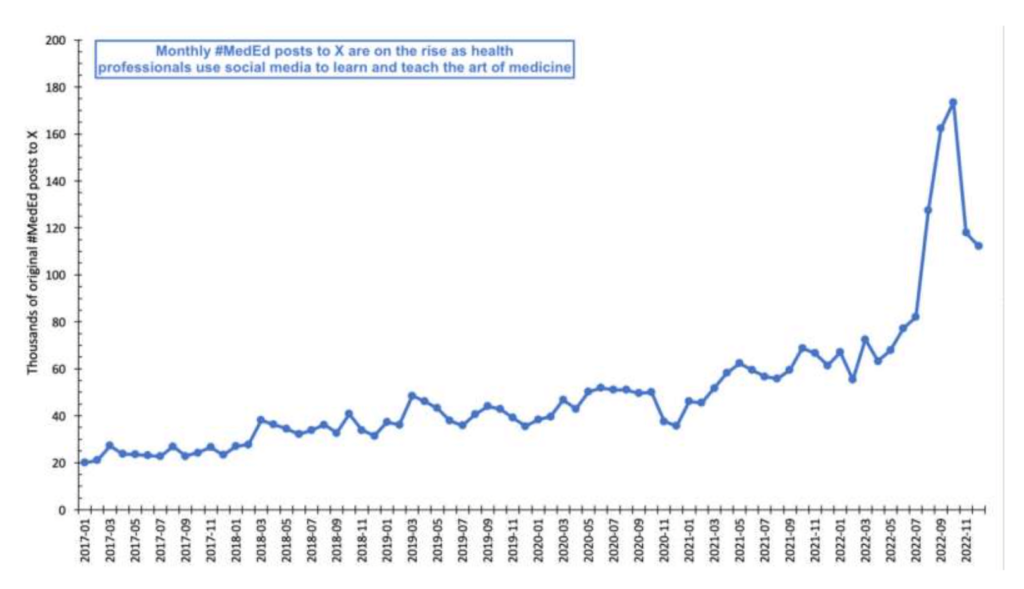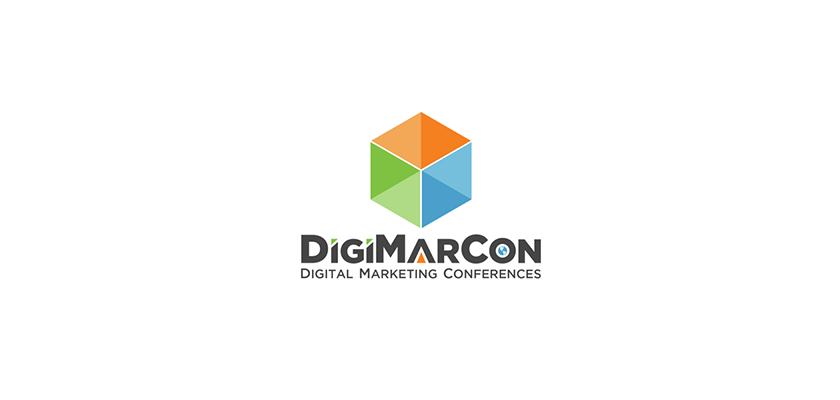Why Every Doctor Needs a Social Media Presence (And How to Build It!)
Gone are the days when social media was just a playground for casual interactions. Today, it’s a powerhouse, especially in the healthcare world.
The healthcare industry is not left behind when it comes to the necessity of having a digital presence. Social media for doctors has transcended from being a mere option to an essential tool in their professional toolkit. For doctors, social media isn’t just a platform for networking but a significant channel for disseminating medical knowledge, advancing medicine, and engaging with the community.
A study highlighted by Medical Xpress shows how social media has become the largest publisher of medical knowledge, surpassing traditional sources and providing a platform for continuous learning and teaching among health professionals. How crazy is that? Would you ever think at the beginning of the 2000s that healthcare services and social media would become “inseparable?”

These statistics underline the significance of social media marketing for doctors, offering a unique platform to connect with patients, share valuable information, and enhance their practices’ visibility.
So basically, every doctor needs a social media presence and we’re here to guide you through on how you can build yours.
How Doctors are Leveraging Social Media to Boost Appointments
We’re all aware of the fact that social media brought a significant shift in the healthcare industry. Doctors are increasingly using social media platforms to enhance patient engagement, build trust, and streamline healthcare delivery. In the following section, we’ll explore the multifaceted ways in which social media is being used by doctors to not only augment their practice but also to revolutionize patient care.
Building Trust and Expertise
One of the fundamental ways doctors are using social media is by building trust and establishing their expertise. Educational content, especially videos on platforms like YouTube, has become an important content type. For instance, a cardiologist sharing videos explaining heart health tips or a dermatologist showcasing skin care routines can significantly influence patient trust. These efforts are not just informative but also help in humanizing doctors, making them more approachable to their audience.
The below example is great to help you understand what we mean by educational content. In the video, Dermatologist Dr. Muneeb Shah creates a Q&A session, answering questions they’ve received from their audience on Twitter about skincare, and dermatology.
Especially when it comes to health, inaccurate information on the internet can be dangerous for all of us. For this reason, the issues we need to be knowledgeable about, in this case the importance of sunscreen and the steps we need to take to avoid getting skin cancer, are explained by real doctors with solid reasons. While the contents allow us to get to know the doctor, they are also very important for creating social awareness.
Utilizing Targeted Advertising
Social media marketing for doctors is incomplete without targeted advertising. Did you know that the healthcare digital ad spend in the U.S. increased by 11.5% in 2022, with a projection of a 10% increase in 2023?
TikTok in particular, along with Facebook and Instagram, provide powerful options for targeting specific demographics. A pediatrician might target new parents in their locality, while a sports medicine specialist could focus on athletes and fitness enthusiasts.
@natural_heart_doctor Replying to @docwarren36 #cardiology #functionalmedicine #cardiologist #hearthealthtips #healthyliving #eatwelllivewellthinkwell #100yearheart ♬ original sound – Natural Heart Doctor
Simplifying Appointment Booking
Integrating social media platforms with appointment booking systems has simplified the process significantly. However, in terms of appointment booking, there’s a notable trend towards phone calls. About 88% of healthcare appointments are scheduled by phone, reflecting a preference for personal and private interactions when it comes to healthcare.
Moreover, healthcare patients are increasingly demanding seamless omnichannel experiences. This means healthcare providers need to ensure that patients feel valued at every step of their journey, from online research to phone calls to in-person interactions.
Many doctors now use their social media profiles to offer direct links to booking appointments, making it convenient for patients to schedule visits without the need for a phone call. Because today, most patients come and find you through online platforms.
To capitalize on these trends, healthcare providers should consider integrating call tracking and analytics solutions. These tools can help understand the webpages, healthcare advertising campaigns, and keywords driving the most calls, and thus, optimize marketing spend for the most effective results.
How to Build Social Media Strategies for Doctors with Real-World Examples
Developing a successful social media strategy for doctors requires a deep understanding of both the platform and the audience. Now, let’s focus on how doctors can craft and implement effective social media strategies, supplemented with real-world examples to illustrate these concepts in action.
Engaging Content Creation
The key to successful social media for doctors lies in creating engaging and relevant content. But what really defines ‘quality content’ in the field of healthcare? It’s the blend of accuracy, relevance, and engagement, sprinkled with a personal touch. Accurate, evidence-based information is the backbone of healthcare social media marketing. This ensures that the health information shared is trustworthy and reliable. For example, Dr. Mike, known on Instagram for his engaging approach, combines medical practice with a personal touch, making healthcare topics more relatable to his patients.
Community Building and Interaction
Imagine that you’re scrolling through your feed and you come across a poll from a healthcare professional asking for your opinion on a health topic, or maybe a quiz testing your knowledge on common health myths. This interactive approach helps physicians create an interactive environment for their community on social media while addressing patients’ questions and concerns and showing their expertise and approachability.
Dr. Sandra Lee, also known as Dr. Pimple Popper, has built a massive community on YouTube and Instagram by actively engaging with her followers, answering their queries, and sharing intriguing content.
Personal Branding and Authenticity
Personal branding is about showcasing the human aspect of being a physician. Dr. Austin Chiang’s TikTok presence is a prime example. He uses humor and authenticity to demystify complex gastroenterology topics, making them accessible to a broader audience.
@austinchiangmd live a little #xmas #weightloss ♬ is that a giant slay – Meg ~ Balanced Nutritionist
Stepping into the world of social media as a doctor might seem daunting, but it’s a journey worth embarking on. If you’re recognizing the necessity of a digital presence but feel unsure about where to begin, fear not. Our top recommendation for you is to find a healthcare digital marketing agency that is suitable for your needs. By getting help from professional agencies, you can proceed much easier, at least in the beginning, so you can take the first step to increase your social media presence.
SMART (Specific, Measurable, Achievable, Relevant, Time-bound) Social Media Goals
One of the most important strategies for doctors to effectively improve their social media presence is to create SMART goals.
- Specific: Goals should be clearly defined. For example, a physician might set a goal to increase their Instagram followers by 15% over the next three months, focusing on health-conscious individuals in their region.
- Measurable: Quantify goals to track progress. This could be the number of new patient inquiries received via social media or the engagement rate on educational posts.
- Achievable: Set realistic goals that can be attained with available resources. A feasible goal could be to post weekly health tips, ensuring consistent patient education and engagement.
- Relevant: Align goals with broader professional objectives. If a doctor specializes in diabetes care, their social media content could primarily focus on diabetes education, prevention, and care.
- Time-bound: Establish a timeframe for each goal to maintain momentum and focus. For instance, planning a three-month content calendar with specific themes or health awareness events.
Defining Audience: Attracting the Right Patients
A critical aspect of digital marketing for doctors is identifying and engaging the right patient demographic. However, to achieve this, you need to understand who your patients are and what they seek from physicians online. To start with, analyze your current patient base to identify common characteristics such as:
- Health Concerns
- Lifestyle Preferences
- Age and Gender
Insights into these characteristics will assist you in tailoring your healthcare social media marketing strategies and resonating with this demographic. If you’re a family physician, for instance, you might consider focusing on sharing tips about family health and wellness, pediatric care, and common seasonal ailments, as these topics are likely to attract families seeking comprehensive healthcare.
A local medical practice significantly improved its social media performance by optimizing its Facebook page, creating regular, informative content, and actively engaging with its audience. This approach led to an 86% increase in social media impressions and a 79% increase in clicks and engagements. They focused on presenting professional and brand-consistent profiles, and their content varied from educational posts to videos, effectively catering to the interests of their patient base.
Storytelling Attracts Patients!
The power of storytelling, particularly through patient journey stories, cannot be overstated for healthcare professionals. Sharing patient stories, with due respect to consent and confidentiality, is a profound way to illustrate the impact and transformation brought about by medical care. These narratives, ranging from overcoming health challenges to transformative treatment experiences, not only serve as potent testimonials to the quality of care but also resonate deeply with potential patients, fostering a sense of hope and trust.
Many institutions use storytelling to educate and reach patients. One example of this is the Mayo Clinic. The institution shares patient success stories often, providing an authentic look into the real-life impact of their healthcare services. Such stories highlight the holistic journey of diagnosis, healing, and recovery, making healthcare more human and relatable. When shared thoughtfully, these patient journey stories become highly powerful for building credibility and connecting on a personal level with your target audience. They underscore the meaningful work doctors do, extending beyond clinical outcomes to touch lives profoundly.
Best Social Networks for Doctors
Different social media platforms offer unique advantages and opportunities for doctors. In this section, we will navigate through the most effective platforms for healthcare professionals, discussing their specific benefits and how they can be optimally utilized for healthcare communication and marketing.
- Facebook: With its targeted advertising and community groups, it’s a great platform for physicians to share information and connect with patients.
- Instagram: Ideal for visual storytelling and direct patient engagement.
- TikTok: Perfect for reaching younger demographics with short, engaging health tips.
- YouTube: Best for in-depth educational content, helping to build a deeper connection with patients.
- LinkedIn: A professional network that’s excellent for building connections within the healthcare community.
Conclusion: Navigating Social Media as a Healthcare Professional
As the digital landscape evolves, so does the necessity for doctors to adapt to these changes. Social media for doctors is not just about marketing though. It’s about creating a connection, educating the public, and ultimately enhancing the quality of healthcare delivery.
With the right strategies and a genuine approach, physicians can benefit from all these platforms to make a significant impact in their professional lives and the lives of their patients.























